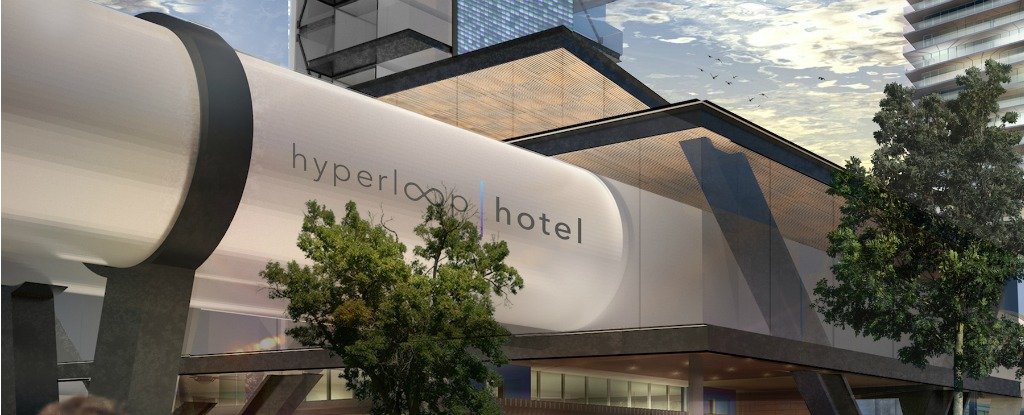
A graduate architecture student named Brandan Siebrecht is dreaming of revolutionizing travel experience by introducing a transit system and 13 hotels in different cities across the United States, in a massive project that he calls the ‘Hyperloop Hotel’.
This person is a student at the University of Nevada, Las Vegas and he dreams to fuse all the components of a memorable tourist vacation including hotel accommodation and transportation in a unique experience.
Siebrecht is the student winner of the Radical Innovation Award of this year.
It is a special competition for imaginative hotel designs. In June, a group of seven hotel investors, architects and developers had chosen Driftscape as one of the two finalists out of the 65 submissions from 24 nations.

This is a futuristic concept.
And, it is expected to eliminate the requirement to purchase separate transit tickets for most of the largest cities in the US. It calls for hotels in as many as 13 locales including the ones in Boston, New York City, Washington DC, Chicago, Nashville, Austin, Sante Fe, Denver, Los Angeles, Las Vegas, San Francisco, Portland and Seattle that would all be beautifully connected by a Hyperloop system.
Thos special concept would eliminate the requirement to purchase separate transit tickets for most of the largest cities in the US.
This design is inspired by DevLoop that is a real test track for HyperloopOne being developed north of Las Vegas. It was a concept that was first introduced by Elon Musk, the CEO of Tesla in 2013. Though the project continues to be conceptual and has experienced delays, the startup has said that its aim is to deliver a fully operational system by the year 2020.
The hotel guests of this Hyperloop system would be able to zoom swiftly through a network of cities while never leaving their room, according to Siebrecht. He has not yet estimated the cost of each night at the hyperloop hotel system.
He added that guests would be able to travel to any hotel destination inside the network and also visit many destinations in a single day.
The modular hotels would cost about US$10 million to build and would also depend on the location. The hotels in dense cities are likely to enjoy smaller footprints as compared to the ones in less dense areas.